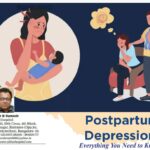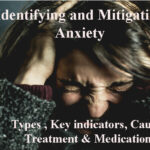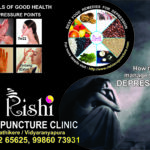Depression and Anxiety in children are common and should not be ignored. Children experiencing chronic distress, hopelessness and feelings of worthlessness must be given proper attention as these could be potential warning signs.
Children often go through emotional upheavals resulting in sadness and overwhelms. They might even experience emotional spiraling leading to fears, phobias or sadness. Although feeling sad and fearful is common in children, severe forms of fear and persistent sadness can be a result of undiagnosed mental health conditions such as anxiety or depression. According to research studies, anxiety disorders affect about 50% of population who are diagnosed with depression, hence it is not unusual for children to experience both depression and anxiety.


Research shows that most children suffer from anxiety and depression. Anxiety affects 7.1% of children aged 3 to 17 years (approximately 4.4 million). Depression has been diagnosed in 3.2 percent of children aged 3-17 years (approximately 1.9 million). Anxiety is characterized by persistent elevated levels of fear that are difficult to manage. Being worried is a common response to difficult situations in childhood but it is concerning when the fears are overwhelming, affecting their home and school life. If left unattended, they can intensify affecting their functioning considerably.
Some of the warning signs seen in children experiencing anxiety are:
- Sudden shift in the mood
- Increased Irritability and annoyance
- Extremely hesitant to leave their parents
- Frightened in circumstances such as group events
- Difficulty communicating with others
- Having a hard time engaging in daily activities
- Sudden anger outburst
- Difficulty Concentrating
- Problems falling asleep
- Frequent use of toilet
- Regularly experiencing stomach pain
- Worried about something bad happening
Going through tough emotions is a normal part of growing up which usually get resolved over time. Some children, on the other hand, feel helpless & worthless, suddenly become uninterested in activities they used to previously enjoy, struggle to follow their usual pattern of eating, sleeping and show significant changes in energy levels lasting over weeks. Children experiencing chronic distress, hopelessness and feelings of worthlessness must be given proper attention as these could be potential warning signs.
Some concerning behaviours children could exhibit in depression are:
- Feeling sad, helpless, hopeless worthless, irritable most of the time.
- Not enjoying or engaging in hobbies and other interests.
- Changes in eat, sleep and energy levels
- Having difficulty paying attention, concentrating
- Not doing well in school
- Detaching from family, friends and social situations
- Self- esteem issues
- Impaired thinking
- Sensitivity to rejection
- Exhibiting self-harm and self-destructive acts
Suicide is one of the top causes of mortality for young people aged 10 to 24.Severe depression with suicidal ideation needs immediate attention. Some children may not be in a position to express their helplessness and hopelessness hence parents, teachers and guardians must always be watchful of these signs. Depression and anxiety could lead to behavioural and emotional changes, and a lack of awareness may cause people to miss the red flags of childhood depression and anxiety.
Oftentimes these signs go unnoticed; this could be because either parents are in denial due to societal pressures and fears of battling stigmas attached to mental health or lack enough knowledge to dismiss these signs as natural emotional changes that occur over the course of a child’s growth cycle. It is important that these warning signs and redflags should be noticed by the parent(s), teacher(s) and/or guardians. If these signs are persistent and over a period of time then these circumstances warrants immediate professional attention or doctor’s supervision.


Samitha Jain M
Counselor and Psychotherapist
Medall Mind











